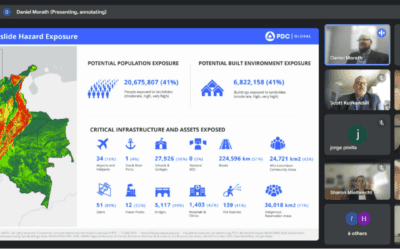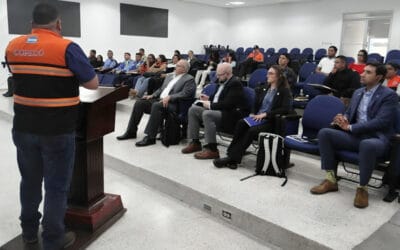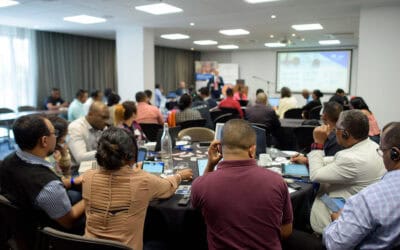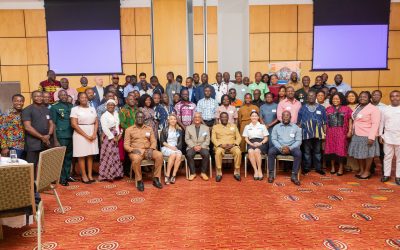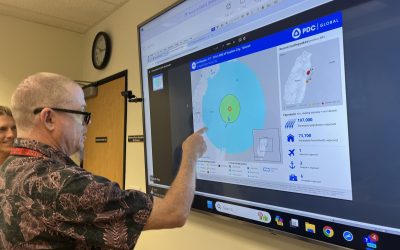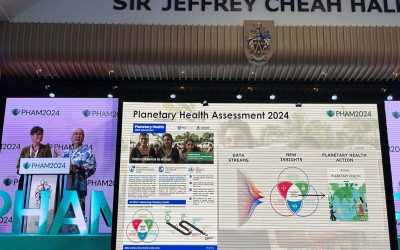Accra, Ghana—The government of Ghana, through its National Disaster Management Organization (NADMO), is undertaking a new National Disaster Preparedness Baseline Assessment to help build its capacity to reduce risks from multiple hazards. Like many other countries across the globe, Ghana experiences several forms of extreme weather hazard impacts, including the sharp increase in devastating floods, droughts, coastal erosion, and landslides felt by communities throughout the country—especially those in northern and coastal regions.
The initial workshop for the assessment took place on Wednesday, April 19, 2023 at the Marriott Hotel in Accra, drawing the participation of more than 60 diverse stakeholders from multiple sectors.
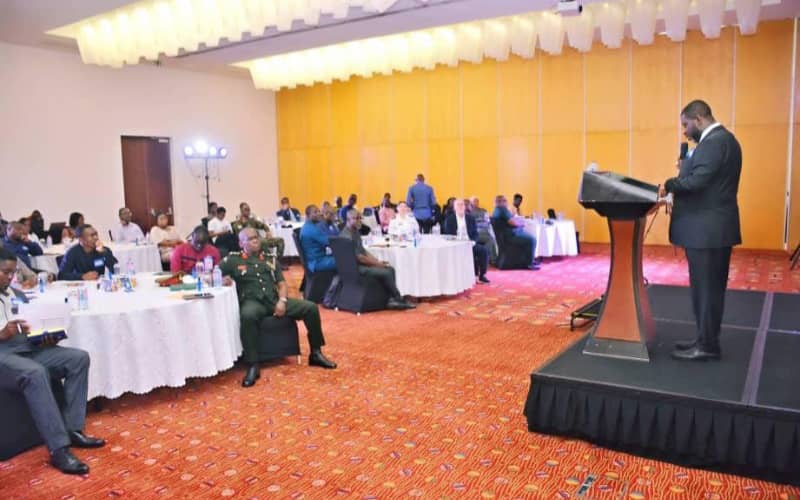
Ghana’s Director General of NADMO, Hon. Eric Nana Agyemang-Prempeh addresses workshop participants during the NDPBA kick off on April 19, 2023.
“Ladies and Gentlemen, recent occurrences in many parts of the world remind us of the universal nature of disasters and the need for the world to adopt a more harmonized approach to humanitarian response. Multi-hazard risks including earthquakes, disease outbreaks that reach pandemic proportions, conflicts, tidal waves, floods, bushfires, and chemical explosions characterize Ghana’s risk profile. This workshop marks the inception of a yearlong process intended to unearth the challenges of disaster management and risk reduction in Ghana, while at the same time building capacity of key stakeholders on various digital and web-based tools like the DisasterAWARE platform.”
Ghana’s Director General of NADMO, Hon. Eric Nana Agyemang-Prempeh
The assessment is being conducted in collaboration with the University of Hawai’i’s Pacific Disaster Center (PDC), which is globally recognized for its innovations in disaster risk reduction. Working together using a country-driven approach, the assessment will involve national and subnational governmental stakeholders, nongovernmental organizations, and scientific, academic, and private sector groups—all of whom play an important role in building resilience to disasters.
Hon. Nana Agyemang-Prempeh emphasized the importance of the assessment in helping to identify key factors contributing to heightened disaster risk and its usefulness for accelerating the country’s commitments to the UN Sendai Framework for Disaster Risk Reduction and Sustainable Development Goals.
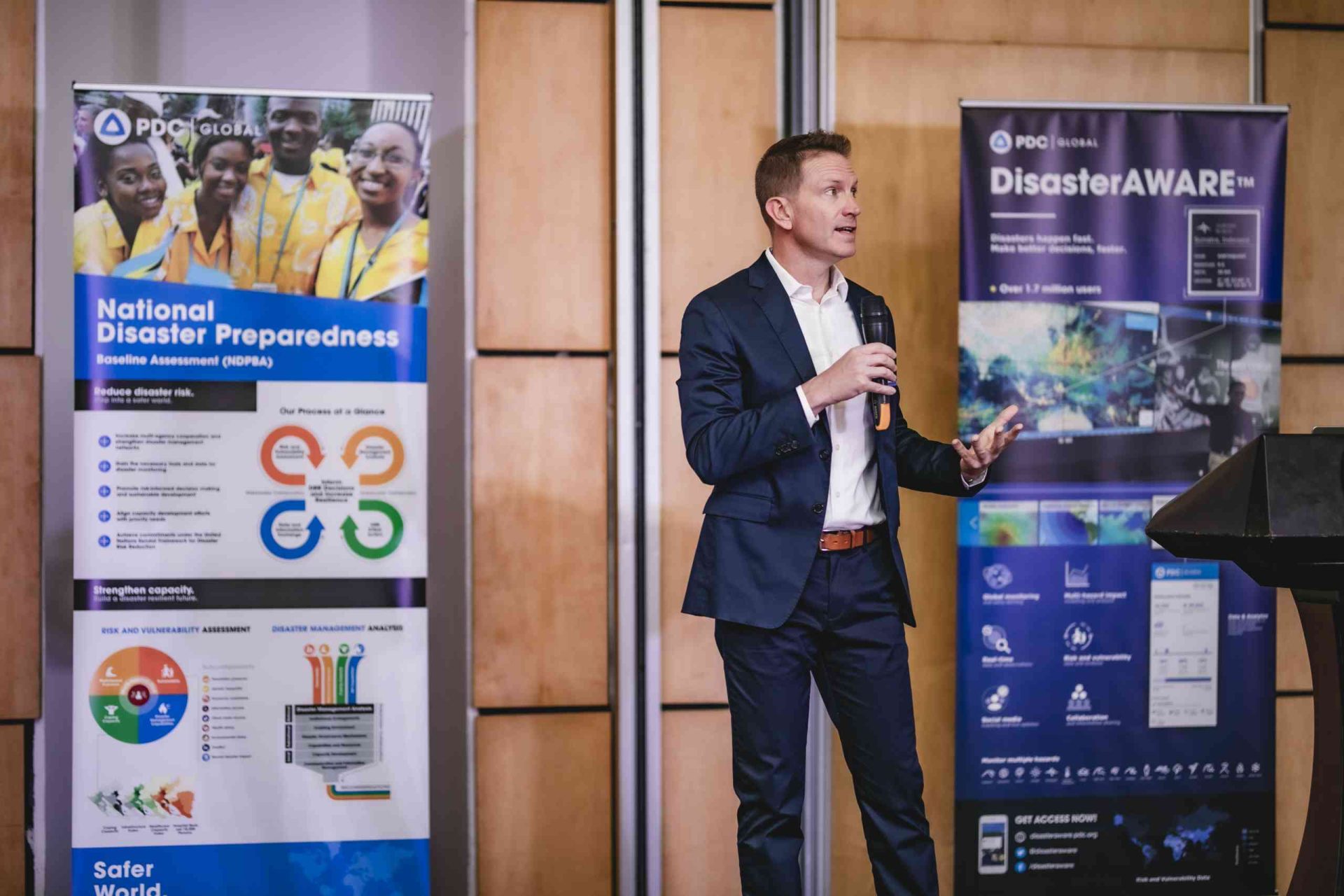
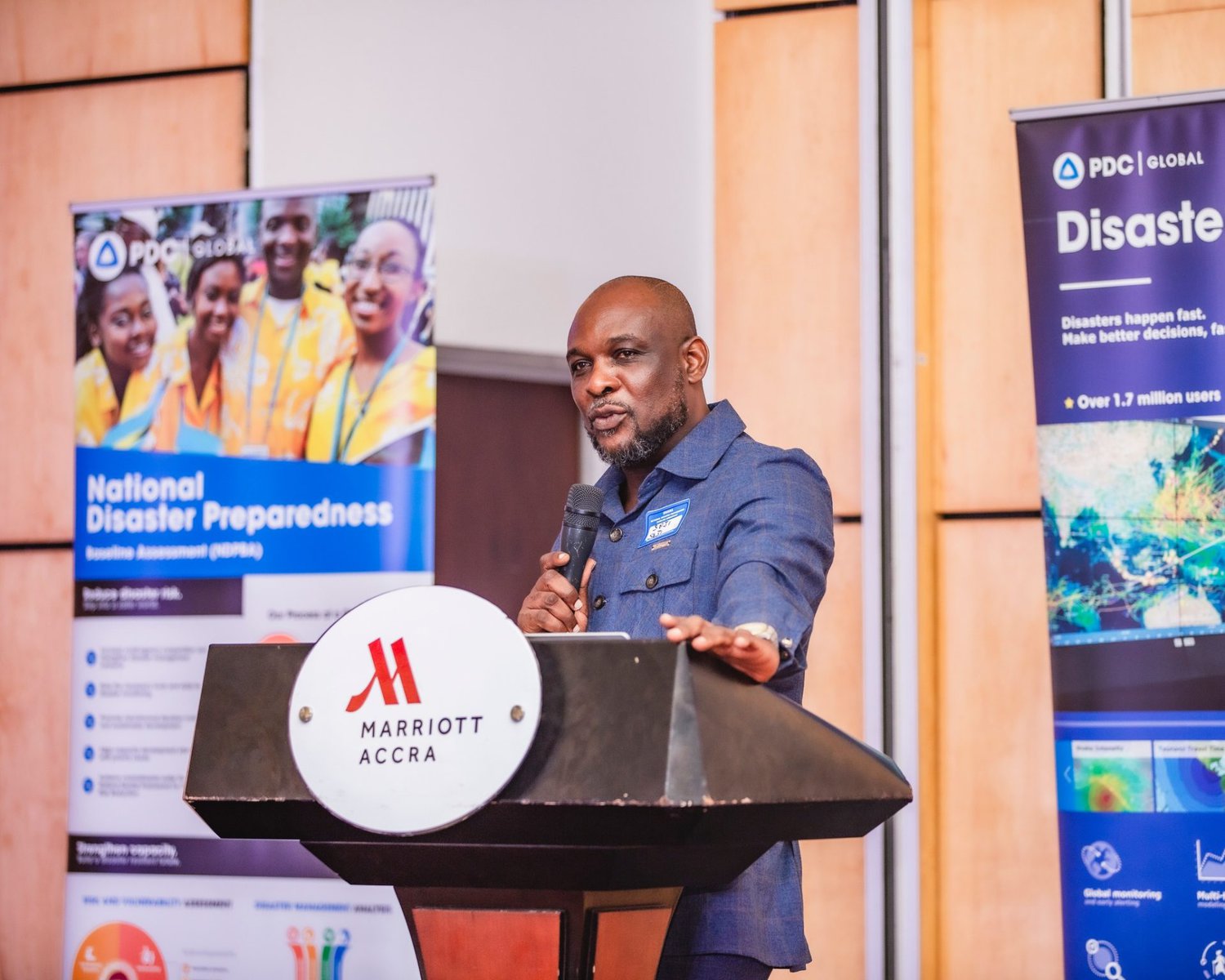
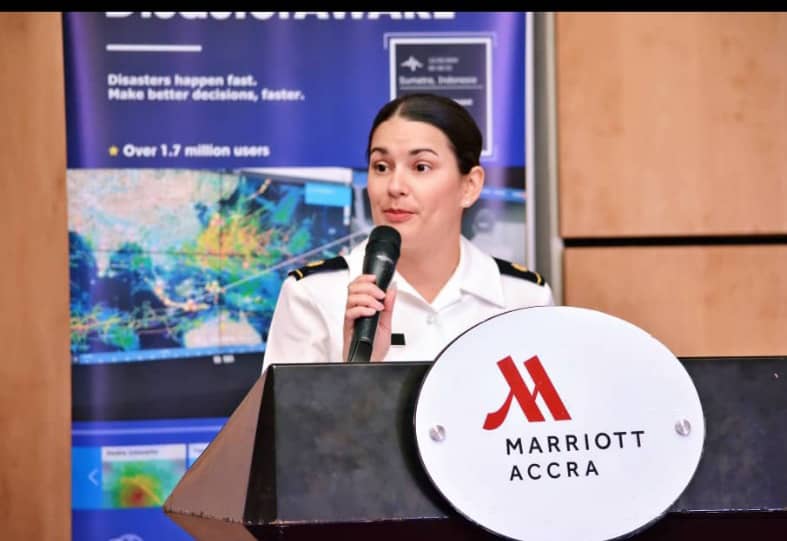
Left to Right: PDC Director of Applied Science, Dr. Joseph Green; NADMO Deputy Director-General Seji Saji, Major Beth Simek, Bilateral Affairs Officer, US Embassy Accra
“We are honored to be selected as a partner of Ghana to help identify opportunities to tackle the complex and often interconnected issues of disaster risk, resilience, and sustainable growth. Many of the issues facing Ghana are global issues we have seen throughout the world in the rise in epidemics and pandemics, more frequent and severe impacts from naturally occurring hazards, and the ever-growing geopolitical and economic pressures spurred on by these events,” said PDC’s Director of Applied Science Dr. Joseph Green.
“To face these problems, we need inclusive action and national, regional, and international cooperation to forge creative strategies that leave nobody behind,” said Dr. Green.
“To further our preparedness, better anticipate the impacts of hazards, and enhance rapid decision making, PDC global, alongside NADMO, will begin Ghana’s first National Disaster Preparedness Baseline Assessment. The State Partnership Program and NADMO recently conducted a disaster preparedness exercise, Operation Shikpon Wosomo, in which PDC will use the many achievements and lessons learned from that exercise, among others, for this important baseline assessment,” said Major Beth Simek, Bilateral Affairs Officer, US Embassy Accra.
Assessment results will culminate in a five-year roadmap of jointly-developed actions and recommendations to mitigate losses, build national resilience, and enhance disaster management capacity. Assessment data will be shared with national disaster management stakeholders and humanitarian assistance practitioners for daily, operational use via PDC’s DisasterAWARE technology platform.
DisasterAWARE provides continuous, near real-time hazard alerts and risk insights derived from national baseline data, robust modeling, and PDC’s AI for Humanity computing technology.
DisasterAWARE, according to Dr. Green, will “allow the country to share information and leverage risk information and early warning to support better coordination and planning between organizations.” The National Disaster Preparedness Baseline Assessment, developed by PDC, was recently recognized by the United Nations for its comprehensive and unique approach and its application of advanced technologies that help operationalize the Sendai Framework goals.
Ghana’s assessment includes ongoing training on DisasterAWARE and is slated for a comprehensive risk assessment approach over the next 12 months including a national and subnational assessment of risk within each of the country’s diverse regions.
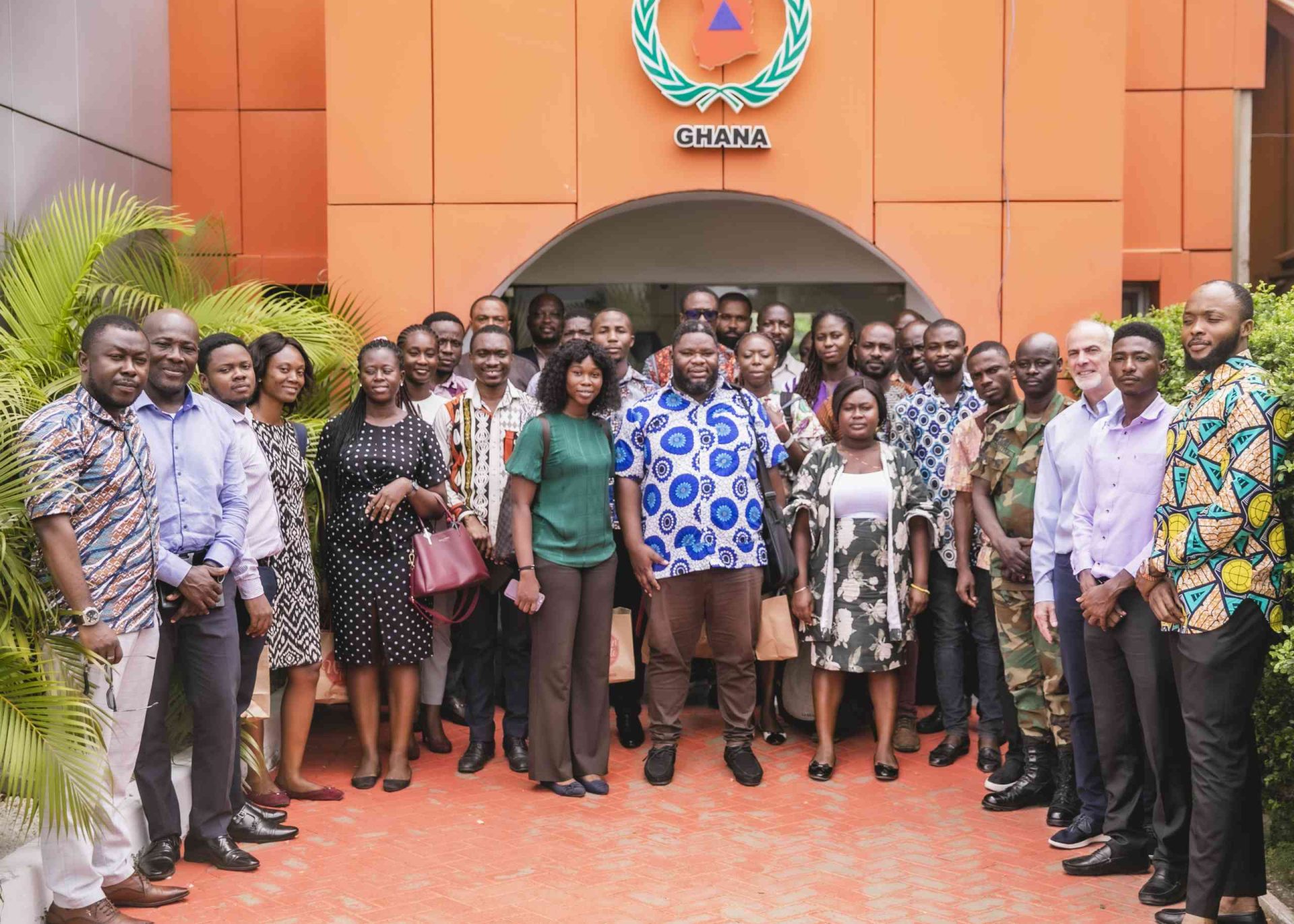
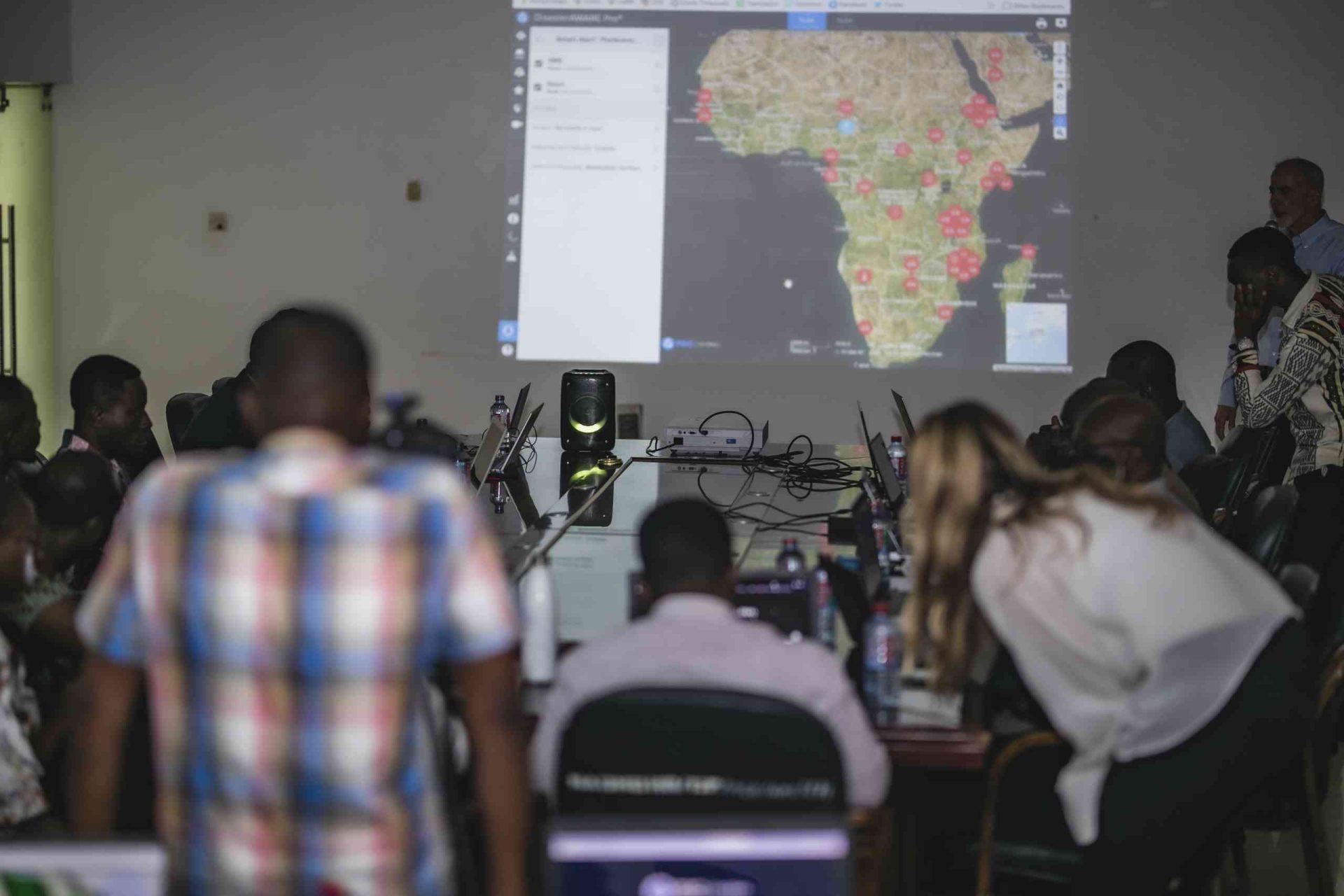
NDPBA stakeholders received introductory training on PDC’s DisasterAWARE Platform at NADMO’s national training center.

